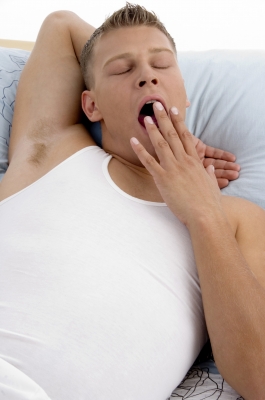If you are trying to lose weight, a bad nights sleep can be one of your greatest enemies. According to studies performed at the University of Colorado’s Sleep and Chronobiology Laboratory, people who don’t get enough sleep produce more of a hormone called ghrelin, which incites hunger. In addition, their bodies also produced less of the hormone leptin, which triggers the feeling of fullness. Researchers believe that these hormonal imbalances are what caused participants who did not get enough sleep over a five-day period to eat over 300 calories more per day than when they were well rested and gain over two pounds in less than a week.
Eve Van Cauter, director of the Sleep, Metabolism and Health Center at the University of Chicago says that most young adults need about seven to nine hours of sleep a night, but that need may vary. In order to see how much sleep your body needs, she recommends to go to bed at your normal time with no alarm and wake up on your own. Do this for a couple of days to catch up on sleep and then record how many hours you are sleeping, plus or minus 15 minutes. This time will predict how long your body needs to sleep to be properly rested.







